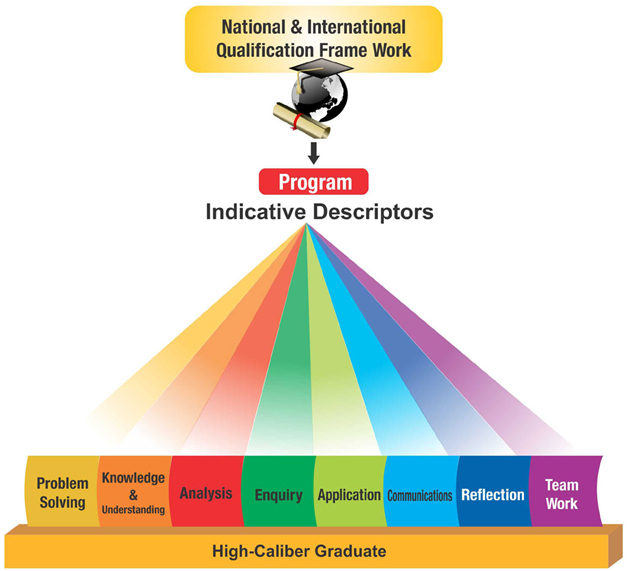SSAGE pedagogy is based upon discovery learning, Group learning, Hands-on learning, Independent Study, and Critical thinking. The uniqueness of the courses and programmers of SAGE University is ‘ Let us work “ instead of” Let me teach” from 1st day. Best learning and teaching strategies give deliverables in the form of “Project-Based Learning” to achieve the employability of students. The approach of Micro, Minor, Macro, and Major (Final year Project) project-based learning model of the courses is unique methodologies of lively learning.
This unique academic model system is to produce employable graduates who are fitted to undertake employment in industry, commerce, or public service as professionals by developing their capabilities in relation to innovation, integration of ideas and concepts, interactive development, information provision, and imaginative approaches to processes and problem-solving. The curriculum is designed to provide a Personal Development Planning opportunity for all students concerning enhancing their employability through increasing their independence, inventiveness, ingenuity, and developing their all-around intelligence concerning solving problems, working with other people, and communication skills. All the programs/course syllabus should be concerned with the following themes:

Innovative: Innovative in module content, the design of curriculum, and the selection of such courses as Forensic Computing, Techno premiership, Media Marketing, and Media Informatics.
Integrative: Integrative in developing students’ capability to interrelate knowledge and to work in multidisciplinary teams.
Informative: Informative in developing students’ knowledge but also their capability to communicate effectively and persuasively.
Imaginative: Imaginative in relation to new products, ideas, applications and solutions.
Interactive: Interactive in the use of group work to develop students’ team skills and also in the use of technology to achieve interactivity of devices and people.
Intelligence: Intelligence through learning methods that encourage reflection, understanding, enquiry and problem solving.
Independence: Independence through learning methods that encourage independent learning, autonomy, and critical thinking.
Ingenuity: Ingenuity by linking independent skills to intelligence and inventiveness to find new ways of utilizing existing knowledge, materials, products, concepts to find new more effective solutions.
Inventiveness: Inventiveness through developing skills that are analytical in seeking innovative ways of doing things.